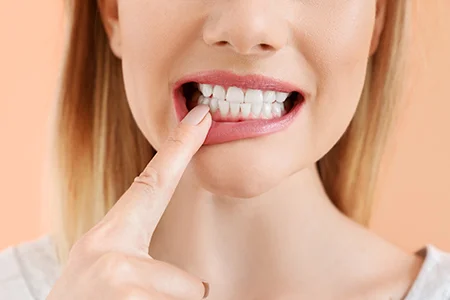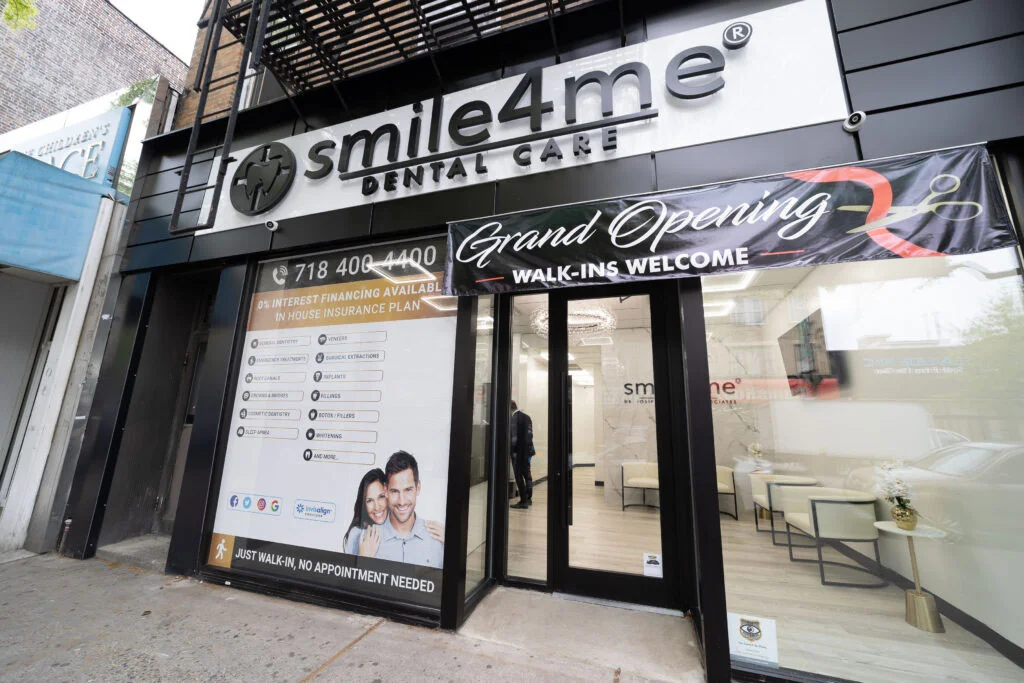Did you know that over 2 million people in the U.S. visit the emergency room each year for dental pain? That’s a staggering number, especially when a dentist could handle many cases faster, more affordably, and more effectively. It’s no wonder people often ask, “Can you go to the ER for tooth pain?”
In this blog post, we’ll explain when it makes sense to go to the ER for a toothache, what the ER can and can’t treat, and why seeing an emergency dentist Astoria has to offer is usually the best solution for urgent dental treatment.
Can You Go to the ER for Tooth Pain?
You can go to the ER for tooth pain, especially if it's severe, sudden, or accompanied by serious symptoms like swelling or fever. The emergency room can provide short-term relief, especially in cases involving infections or trauma. However, ER doctors are not trained to perform dental procedures. That means you’ll likely receive medication to control pain or infection, but still need to follow up with a dentist. I If you’re unsure what to do in a dental emergency, it’s always best to seek professional guidance from an emergency dentist or call the ER to explain your symptoms.
What the ER Can and Can’t Do for Dental Issues

You can go to the hospital for tooth pain, but there are limits to what the doctors can do. ER doctors are trained to manage pain and serious health risks, not to perform dental procedures. In cases involving swelling, trauma, or infection, an ER visit may be necessary to stabilize the issue before you follow up with a dentist. However, most ER visits for toothaches result in temporary relief rather than long-term solutions.
The ER can help with initial care and symptom management for dental emergencies, such as providing:
- Prescription pain medication: ERs can administer or prescribe stronger medication when over-the-counter options aren’t enough.
- Antibiotics for infection: If you have an abscess or swelling caused by a bacterial infection, they can prescribe antibiotics to prevent it from spreading.
- Abscess drainage (in some cases): Depending on the location of the abscess, an ER provider may be able to perform a basic drainage to reduce pressure and pain.
However, the ER can’t treat the underlying dental condition or perform restorative work. They do not provide:
- Tooth Extractions: ERs are not equipped to remove teeth, even if the pain is severe.
- Fillings or Root Canals: A licensed dentist must do these procedures using specialized tools.
- Comprehensive Dental Care: The ER is designed for emergencies, not long-term oral health solutions like crowns, cleanings, or follow-ups.
So while the ER can provide quick help in urgent cases, your best bet for fixing the actual problem is to schedule an appointment or visit your local dentist.
How to Tell If It’s a Dental Emergency

Not all dental problems need immediate care, but some symptoms are severe enough to warrant urgent attention from a dentist or, in some cases, a hospital. Below are dental emergency examples that can help determine whether you need immediate help.
Severe, Persistent Tooth Pain
Tooth pain that doesn’t go away—even after taking over-the-counter medication—can signal a deeper issue, such as an infection, nerve damage, or advanced decay. If the pain is sharp, throbbing, or radiates to your jaw, ear, or head, it’s time to contact an emergency dentist.
Uncontrollable Mouth Bleeding
Bleeding from the mouth that won’t stop after 10 to 15 minutes of applying pressure is a red flag. This could be caused by trauma, advanced gum disease, or complications after a dental procedure. Continuous bleeding should be evaluated by a dentist or medical professional immediately to prevent further complications.
Loose or Dislodged Tooth
If a tooth has been knocked out or feelsunstable in its socket, you’re facing a dental emergency. Time is critical—seeing a dentist within 30 to 60 minutes can improve the chances of saving the tooth. Until you’re seen, keep the tooth moist in milk or saline and avoid touching the root.
Dental Abscesses Appear
A dental abscess is a painful, pus-filled infection that forms around the root of a tooth or in the gums. Signs include swelling in the face or jaw, fever, a bad taste in your mouth, and intense localized pain. Left untreated, an abscess can spread quickly and become a serious health risk.
What to Expect at an Emergency Dentist Appointment
Seeing a dentist is the best option when you have urgent tooth pain or injuries. At Smile4Me Dental Care, we focus on same-day relief and quick treatment planning. After a brief consultation, our dentists will evaluate your symptoms, take digital X-rays, and create a care plan tailored to your situation.
Here’s what we often do during an emergency dentist appointment:
- Diagnose the Problem: We’ll pinpoint the root cause of your pain, whether it’s infection, damage, or decay.
- Treat the Pain Quickly: We may numb the area, clean the affected tooth, or begin antibiotics if needed.
- Provide a Same-day Solution: From extractions to repairs, we aim to solve your issue on the spot, as soon as possible.
Expect a caring, no-judgment environment with professionals who are trained to ease discomfort and restore your smile.
Visit Smile4Me for Same-Day Emergency Dental Care

When you’re in pain, waiting simply isn’t an option. Smile4Me Dental Care offers same-day appointments, weekend availability, and a skilled team ready to relieve pain quickly. Whether you’re dealing with swelling, broken teeth, or infections, our experienced dentists prioritize your emergency.
Our Emergency Dental Services
We treat a wide range of dental emergencies with precision and speed. No matter your situation, we’ll work to restore your comfort and dental health the same day you walk in. Some of our most common emergency services include:
- Same-day Extractions: For teeth that are beyond saving or causing severe pain.
- Broken or Chipped Tooth Repair: These are quick fixes using bonding, veneers, or crowns that match your natural smile.
- Root Canal Therapy : To remove infection and save your tooth from being pulled.
You've found your solution if you’re searching for a dentist in Astoria who sees you the same day, especially on weekends.
Conclusion: Can You Go to the ER for a Toothache?
In conclusion, can you go to the emergency room for dental issues? Yes, but it should be your last resort unless the pain is unbearable or tied to swelling, infection, or trauma. The ER can help temporarily, but you’ll still need follow-up care from a dental professional. That’s why it’s better—and often faster—to visit an emergency dentist instead.
If you’re in pain, don’t wait. Call Smile4Me Dental Care or walk in today for same-day care and fast relief.
FAQs About Going to the ER for Tooth Pain
Can I go to the ER for tooth pain?
Yes, especially if it’s severe, spreading, or preventing you from functioning—but the ER will only offer temporary relief.
Can I go to the emergency room for tooth pain if I have facial swelling?
Yes, swelling could be a sign of infection that requires immediate care to prevent complications.
What do I do if I have extreme tooth pain and can’t sleep?
Take an over-the-counter pain reliever, contact a dentist, or immediately visit an urgent care center.
Is it better to visit urgent care for tooth pain instead of the ER?
Urgent care is often a better alternative if your symptoms aren’t life-threatening and a dentist isn’t available.
Is an emergency dentist appointment faster than going to the ER?
An appointment with a dentist can provide immediate solutions, not just temporary relief, often with less wait time.
